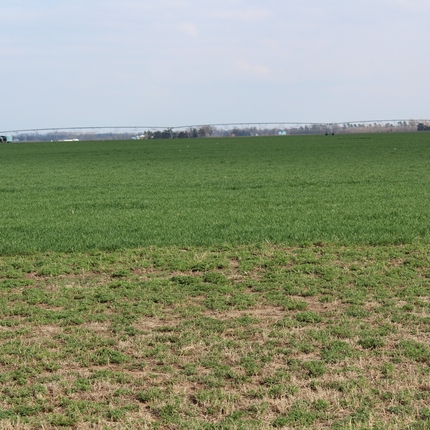Published in the Salina Journal on Nov. 4, 2018
Our country’s foremost piece of agricultural legislation, the farm bill, has expired. The need for preservation of soil health and water quality has never been more important, uncertainty in farm country is high, and rural entrepreneurs need our assistance – but Congress has yet to reach an agreement on a final farm bill.
A major chunk of farm bill programs is now left without funding or authority. This includes more than $1 billion in funds frozen, programs serving beginning farmers and rural economic development halted, and conservation programs blocked from enrolling new contracts.
The authority and funding of many programs has simply vanished, putting up a major and unnecessary roadblock for rural America.
Stalling conservation programs strikes a particularly deep blow. Productivity in agriculture stands on the foundation of healthy soil. Farmers and ranchers better stewarding their soil won’t just happen overnight. Reducing tillage, planting cover crops, and changing grazing patterns require time, attention, learning, and resources. The nation’s foremost conservation program, the Conservation Stewardship Program (CSP), not only helps farmers and ranchers implement practices that build up their soil and benefit their water quality but it also helps them strengthen the skills and knowledge to enhance their stewardship level overall.
Kansas residents take advantage of the opportunity that CSP represents: the state had one of the highest total acres enrolled in CSP and one of the highest numbers of new contracts in 2017. One farmer, Troy Schroeder of Schroeder Family Farms, Inc., in Albert, Kansas, shared with me that CSP is the best conservation program they’ve used and it has made a real difference in keeping their farm operation afloat during low commodity prices. They’ve developed several habitat acres for pollinators while still staying in business.
This valuable conservation program has supported stewardship-minded agriculture for years, and for the good of everyone. But because the 2014 farm bill has expired, CSP is frozen and cannot enroll any more people.
Other major conservation programs are halted as well. The Conservation Reserve Program, the Agriculture Conservation Easement Program, and the Regional Conservation Partnership Program support activities ranging from establishing easements to taking marginal land out of production.
Beyond conservation, economic opportunity is an additional essential foundation for rural communities. A host of farm bill programs helping facilitate diverse rural economic opportunities are also now inactive. This includes loans to rural start-up companies; cost-share for organic certification; value-added grants for farmers; beginning farmer training and education; and farmers market establishment. All offer a path for rural people to build businesses and create jobs – but right now, these activities are all in limbo until Congress acts.
Congress should take action to finalize the farm bill, revive and fund these programs, and provide certainty to rural Americans working toward a vibrant future.
Congress, put aside your differences, and step up for rural America.





